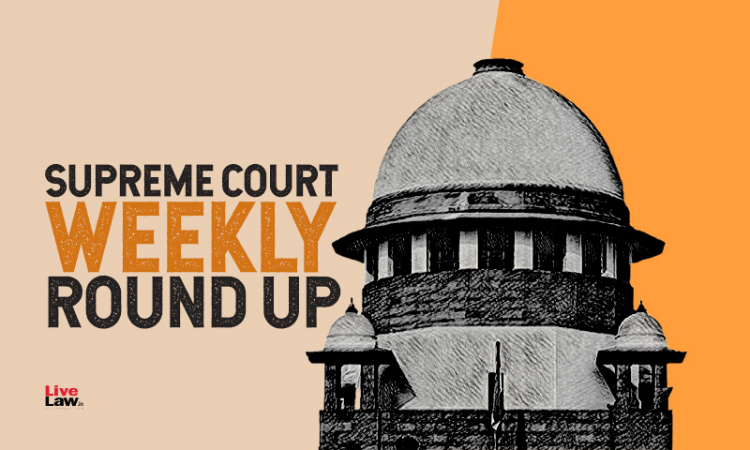- Home
- /
- Top Stories
- /
- Supreme Court Weekly Round Up July...
Supreme Court Weekly Round Up July 12- July 18, 2021
Nupur Thapliyal
18 July 2021 7:28 PM IST
JUDGMENTS THIS WEEK1. Compromise Decree In Respect Of Land Which Is Not Subject-matter Of Suit But Is Part Of Family Settlement Does Not Require Compulsory Registration : Supreme CourtCase: Ripudaman Singh vs. Tikka Maheshwar Chand [CA 2336 OF 2021]Citation: LL 2021 SC 293The Supreme Court observed that a compromise decree in respect of land which is not the subject-matter of suit but is part...
Next Story



